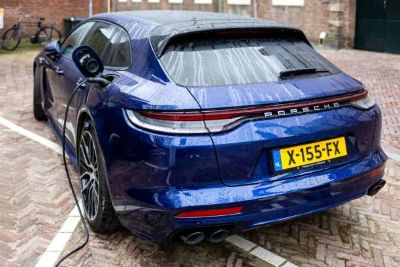


Charging Your EV in the Rain: What You Need to Know About Waterproof Chargers
As a professional EV chargers manufacturer in China, Topper Company provides dependable electric vehicle charging equipment and comprehensive charging solutions.
Electric vehicles (EVs) are quickly becoming a common sight on roads worldwide as the shift to clean, sustainable transportation gains momentum. With more EV owners comes an important question: Is it safe to charge an electric car outdoors when it’s raining?
This concern makes sense—after all, electricity and water are usually a dangerous combination. But thanks to advanced engineering, modern EV chargers are designed to be waterproof and rigorously tested to perform safely in all weather conditions, including heavy rain. With the right charger and proper installation, outdoor EV charging is safe, convenient, and reliable.
Charging at home offers significant advantages over relying solely on public stations. Home charging is more cost-efficient, letting drivers plug in overnight during off-peak hours when electricity is cheaper. It also offers control and convenience, ensuring your EV is fully charged each morning without extra trips.
Topper’s range of home EV chargers is built for outdoor use with weatherproof housings and tamper-resistant designs. This means no matter the weather, you can easily plug in your vehicle after a long day, confident in the safety and durability of your charger.
The short answer is yes—charging your EV in the rain is safe when using certified equipment.
EV chargers are purpose-built to withstand rain, snow, dust, and other outdoor conditions. Their cables and connectors feature waterproof seals that keep moisture out, and the chargers themselves have weatherproof enclosures protecting sensitive electronics.
Safety mechanisms inside both the charger and your vehicle ensure electricity flows only after a secure connection is established. This eliminates risks like electric shock or short circuits during wet weather.
A critical factor in choosing an outdoor EV charger is its Ingress Protection (IP) rating. These ratings, defined by the International Electrotechnical Commission (IEC), indicate how resistant a device is to dust and water.
IP65: Dust-tight and protected against water jets—suitable for most outdoor environments.
IP66: Dust-tight and able to resist powerful water jets—ideal for harsher conditions.
IP67: Dust-tight and can survive temporary immersion in water (up to 1 meter for 30 minutes)—perfect for areas prone to flooding.
For safe outdoor charging, look for chargers with IP65 or higher ratings.
High-quality outdoor chargers come with multiple safety layers:
Sealed Connectors: Waterproof seals prevent moisture damage.
Weatherproof Enclosures: Durable, UV-resistant casings protect internal parts.
Smart Communication: Chargers and EVs confirm a safe connection before power flows.
Leakage Protection (RCDs): Automatically cut power if faults or leakage occur.
Temperature Monitoring: Sensors pause charging if overheating is detected.
Even with waterproof chargers, installation location plays a role in longevity and safety. Avoid placing chargers where water pools or floods, such as the bottom of driveways or near downspouts.
Ideal locations include:
Wall-mounted under an overhang or carport
Freestanding on a pedestal with good drainage
Slightly elevated above ground level to avoid splashbacks
These placements help keep your charger dry and clean while maintaining easy access.
Before market release, waterproof chargers undergo rigorous testing:
Water jets and immersion tests
Dust exposure simulations
UV light resistance
Impact durability checks
Only units passing these tests and earning certifications from bodies like UL or CE are approved for use.
Weatherproof chargers handle rain, wind, and dust but aren’t designed for full immersion.
Waterproof chargers can survive temporary submersion in water.
Most homeowners find IP65-rated weatherproof chargers sufficient, while IP67-rated waterproof models offer extra assurance in flood-prone or coastal areas.
Thanks to advanced design, strict safety standards, and smart technology, charging your EV in the rain is safe and hassle-free. Selecting a certified charger with the right IP rating, combined with thoughtful installation, ensures reliable outdoor charging year-round.
Topper’s waterproof EV chargers deliver peace of mind and performance no matter the weather—making sustainable transportation easier, safer, and accessible for everyone.Know more about Google SEO Directory
